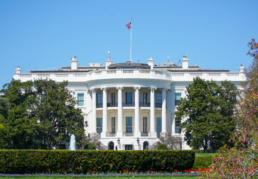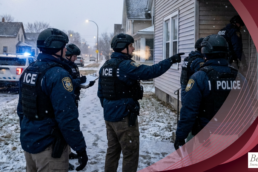On January 20, 2025, President Donald Trump issued an executive order titled “Initial Rescissions of Harmful Executive Orders and Actions,” signaling a significant shift in U.S. immigration policies. By revoking several key executive orders from the previous administration, this order marks a return to stricter enforcement measures and a reconfiguration of priorities in immigration policy. Let’s take a closer look at the rescinded orders and their implications.
Executive Order 13993: Revision of Civil Immigration Enforcement Policies and Priorities
This executive order, initially designed to reevaluate and reset immigration enforcement policies, had placed an emphasis on civil immigration laws. Its revocation suggests a potential shift back to more aggressive enforcement practices, with less focus on distinguishing between undocumented immigrants with and without criminal records.
Impact: The move may result in heightened deportations and a resurgence of practices prioritizing all undocumented individuals for enforcement, regardless of their community ties or criminal history.
Executive Order 14010: Comprehensive Regional Framework to Address the Causes of Migration
Executive Order 14010 sought to address the root causes of migration from Central and North America while ensuring humane management of asylum processes. Its revocation could reverse the progress made toward collaborative solutions and humane asylum processing at the border.
Impact: Stricter border controls are likely to follow, accompanied by reduced avenues for asylum seekers. This may exacerbate humanitarian concerns, especially for those fleeing violence or persecution.
Executive Order 14011: Reunification of Families Separated at the Border
This order had established an interagency task force to reunify families separated during prior immigration enforcement policies. Its rescission raises questions about the continuity of efforts to address the trauma and disruption caused by family separations.
Impact: The revocation may lead to the suspension or delay of ongoing family reunification initiatives, leaving affected families in prolonged uncertainty.
Executive Order 14012: Restoring Faith in Legal Immigration Systems
Executive Order 14012 aimed to strengthen integration efforts and restore trust in the legal immigration process. By revoking it, the administration signals a potential pivot away from policies designed to support immigrant communities and promote inclusion.
Impact: Immigrants may face increased barriers to integration and legal immigration processes, potentially reducing their participation in U.S. society and economy.
Executive Order 14013: Enhancing Refugee Resettlement and Addressing Climate Change Migration
This order had set the stage for rebuilding the refugee resettlement program and addressing climate-induced migration. Its rescission suggests a significant reduction in refugee admissions and a deprioritization of climate-related migration issues.
Impact: Refugee admissions are expected to decrease, and less attention may be given to addressing the displacement caused by climate change, leaving vulnerable populations without viable solutions.
Broader Implications
The revocation of these orders underscores a dramatic shift in U.S. immigration policy. The emphasis appears to be on stricter enforcement and reduced support for immigrants and refugees. While supporters may argue that these changes prioritize national security and immigration control, critics raise concerns about the humanitarian consequences and the long-term effects on immigrant communities and U.S. international relations.
Moving Forward
As these policy changes unfold, they will likely face legal and public scrutiny. Advocacy groups, legal experts, and affected communities are expected to play a critical role in challenging or adapting to this new landscape. For now, the revocation of these executive orders marks a turning point, reshaping the U.S. approach to immigration and its impact on countless lives.
In conclusion, the revocation of these executive orders signals a significant turning point in U.S. immigration policy, reflecting a shift toward stricter enforcement and reduced focus on humanitarian and integrative measures. While proponents argue that these changes strengthen national security and assert greater immigration control, critics emphasize the profound humanitarian costs, the disruption to immigrant communities, and potential damage to the U.S.’s international standing. The full impact of these changes will depend on their implementation, the response from advocacy groups and legal challenges, and the administration’s willingness to address the broader consequences. As the nation navigates this altered landscape, the balance between enforcement, compassion, and global leadership will remain a contentious and pivotal issue.
For more information or to discuss how these changes may impact you or your business, contact us at Berardi Immigration Law. Our experienced team is ready to help you navigate this evolving immigration landscape.
Disclosure: This document is for informational purposes only and does not constitute legal advice. Immigration laws and regulations are subject to change, and individual cases may vary. For personalized guidance and assistance with your immigration needs, consult a qualified immigration attorney.
Ready to have Berardi on your side?
Whether you’re a business looking to hire or a professional hoping to relocate, immigration law can be complicated. But you don’t have to do it alone. Put our experience to work for you.



